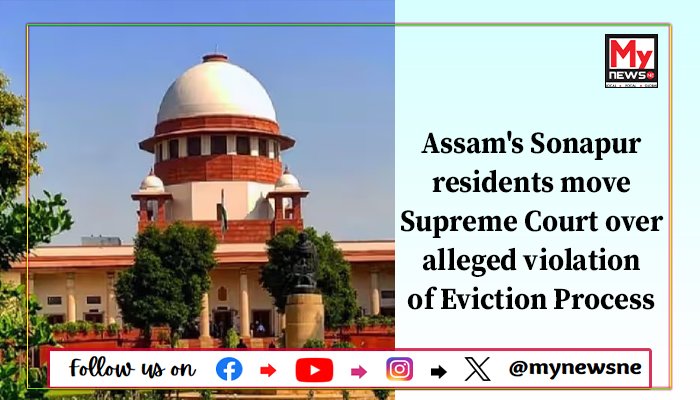Assam’s Sonapur Residents Challenge Demolition Order in Supreme Court
National Desk, 29th September: More than 40 residents of Sonapur in Assam have filed a petition in the Supreme Court, accusing local authorities of willfully violating the court’s interim order that barred any demolition without prior permission. The plea, filed through advocate Adeel Ahmed, calls for contempt proceedings against those responsible for what the petitioners described as “gross, deliberate, and willful contempt” of the Supreme Court’s directive issued on September 17.
The interim order from the apex court had instructed that no demolitions should occur anywhere in the country without the court’s express permission until further hearings. The court, however, clarified that the order did not apply to unauthorised structures in public spaces such as roads, railway lines, or where demolitions had already been mandated by a court.
The petitioners allege that despite this clear instruction, authorities in Sonapur began an eviction process without following due procedure. They claim that red stickers were placed on their homes as eviction markers without any prior notice or official communication.
Residents, including petitioner Faruk Ahmed, stated that they have lived in Kachutoli Pathar and other nearby villages in Kamrup Metro district for several decades. Though they do not have ownership rights, they occupy the land under a legally valid Power of Attorney from the original landowners, or pattadars.
The petition references a Gauhati High Court order from September 20, 2024, in which the Advocate General gave an assurance that no action would be taken against the residents until their legal representations were reviewed, following an earlier Supreme Court directive from 2020.
Despite these legal assurances, the petitioners claim their homes were marked for eviction without warning. They assert that they have peacefully coexisted on the land for more than seven decades, with no disputes with neighboring tribal or protected communities.
Contrary to allegations from authorities that they are illegal occupants of tribal land, the petitioners argue that they have been allowed to reside there by the original landowners, many of whom are from protected classes. The residents also clarified that they have never claimed ownership of the land and that their families have been registered pattadars of the scheduled lands since the 1950s, long before the region was designated as a Tribal Belt.
The case is scheduled for a hearing on September 30 before a bench comprising Justices B.R. Gavai and K.V. Viswanathan.

